Workout Nutrition – What to Eat Before, During and After Exercising
By Adrian| December 10th, 2023
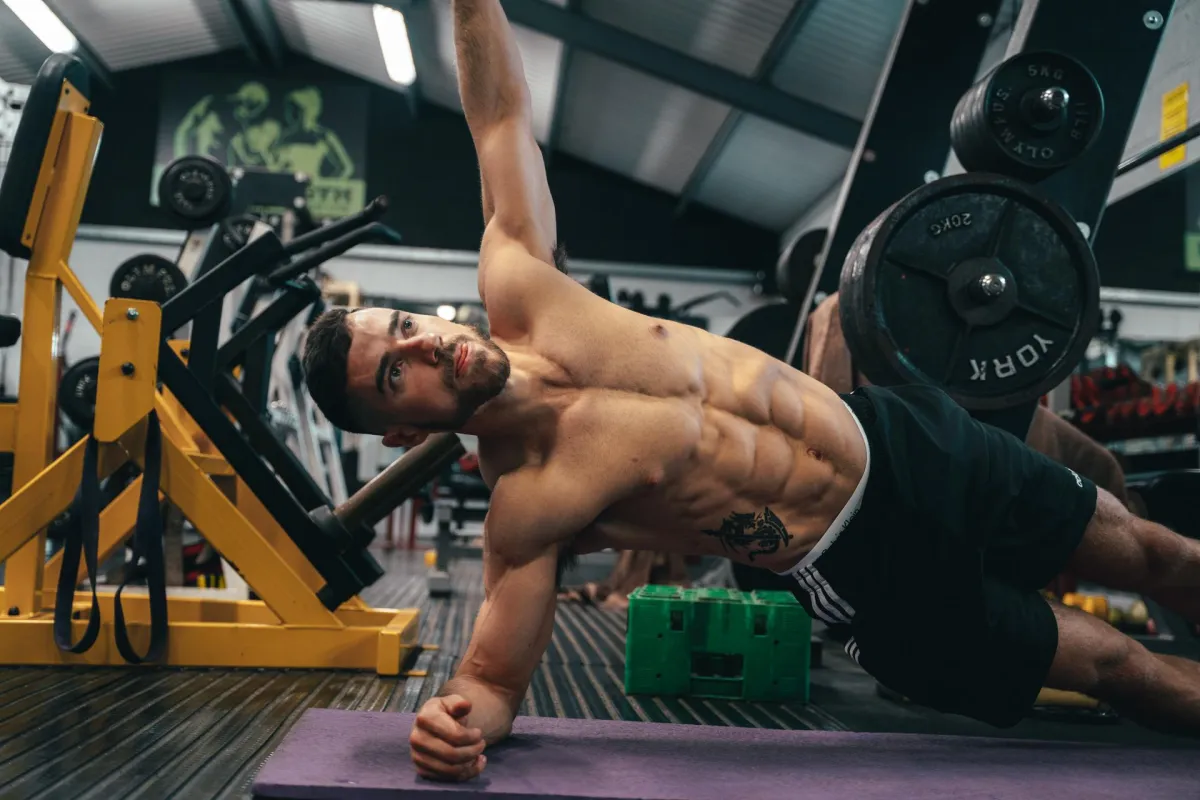
How Important is Timing our Meals?
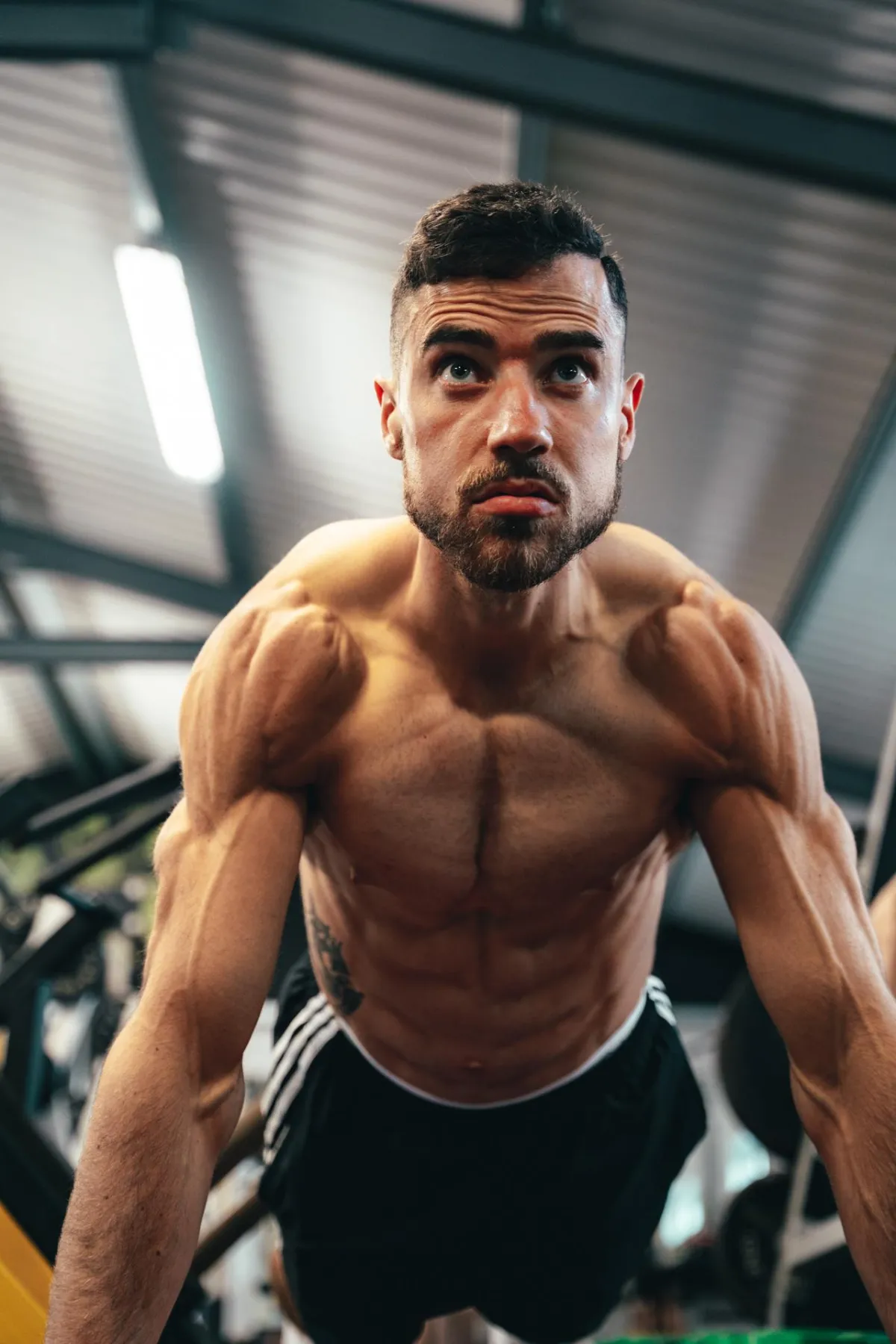
We all have an idea of what to eat when it comes to looking, feeling and performing better.
But, what about when you eat?
Does when you eat really matter? For losing weight? Toning up? Building muscle? Improving performance?
Let’s take a closer look and find out!
In this blog post, I’m going to:
- Describe what nutrient timing is
- Break down meal timing into broader categories
- Talk about meal frequency
- Determine the importance of meal timing
Nutrient Timing – What Does it Mean?
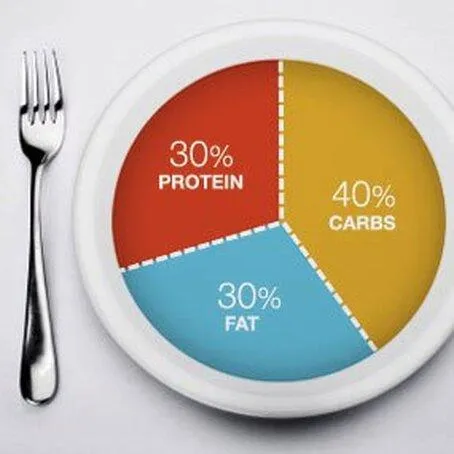
Nutrient timing simply means eating specific nutrients (i.e. protein, carbohydrates and fats) in certain amounts at specific times of the day. For example, for breakfast, post-workout, in the evening etc.
Implementing nutrient timing strategies is based on how the body handles different types of food at different times of the day.
To simplify nutrient timing, we’re going to break it down into four broad categories:
Pre-workout nutrition – what to eat before your workout
Post-workout nutrition – what to eat after you complete a workout
Training fasted – advice if you do not eat to wish before you start a workout
Any-time nutrition – what to eat any other time of day.
Pre-Workout Nutrition Principles:
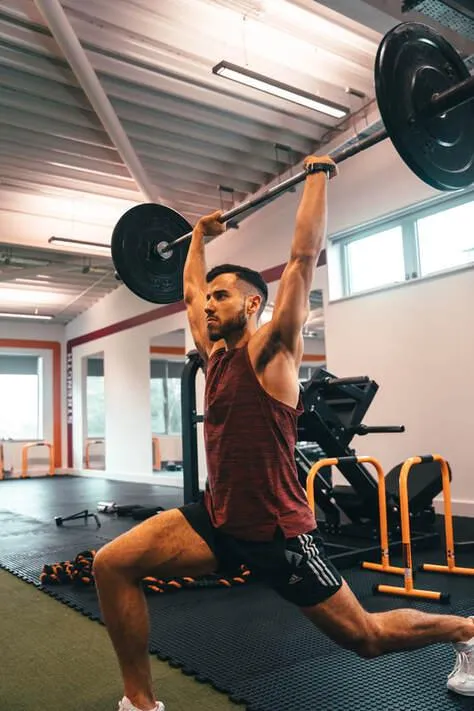
Pre-workout nutrition is dependent on the type of workout you’re doing. Give the body what it needs when it needs it. Doing heavy strength training or sprinting on the pitch vs going for a slow jog place different demands on the
body.
However, your bodies preferred form of energy is glucose – which we get from eating carbohydrates. But our bodies can only store a certain amount of carbohydrates. Think of your bodies capacity to store carbohydrates as being like a battery – once the battery is 100% charged it can’t get any fuller!
So, while carbohydrate intake is extremely important (especially if you’re an athlete or serious competitor), eating too many of them can cause you to spill over and store additional bodyfat.
On the flip side, what happens when the battery is empty? Thankfully, unlike our phones, our bodies don’t shut down. It will then use its secondary form of energy – fats.
Carbohydrates give us a faster release of energy (the type of carbohydrates we eat will determine how fast) while fats give us a slower, more gradual form of energy.
Going back to pre-workout nutrition, if you’re training is demanding and intense and requires a lot of effort, fuelling your session with some carbohydrate’s pre-workout will help give you the required energy to push through the session.
It is particularly important for field athletes such as GAA, soccer and rugby players along with endurance athletes to adopt a carbohydrate loading protocol in the days leading up to the match/event.
But, if the training is light to moderate in intensity, you may not need as many, or even any carbohydrates pre- workout.
Pre-Workout Nutrition Guidelines:
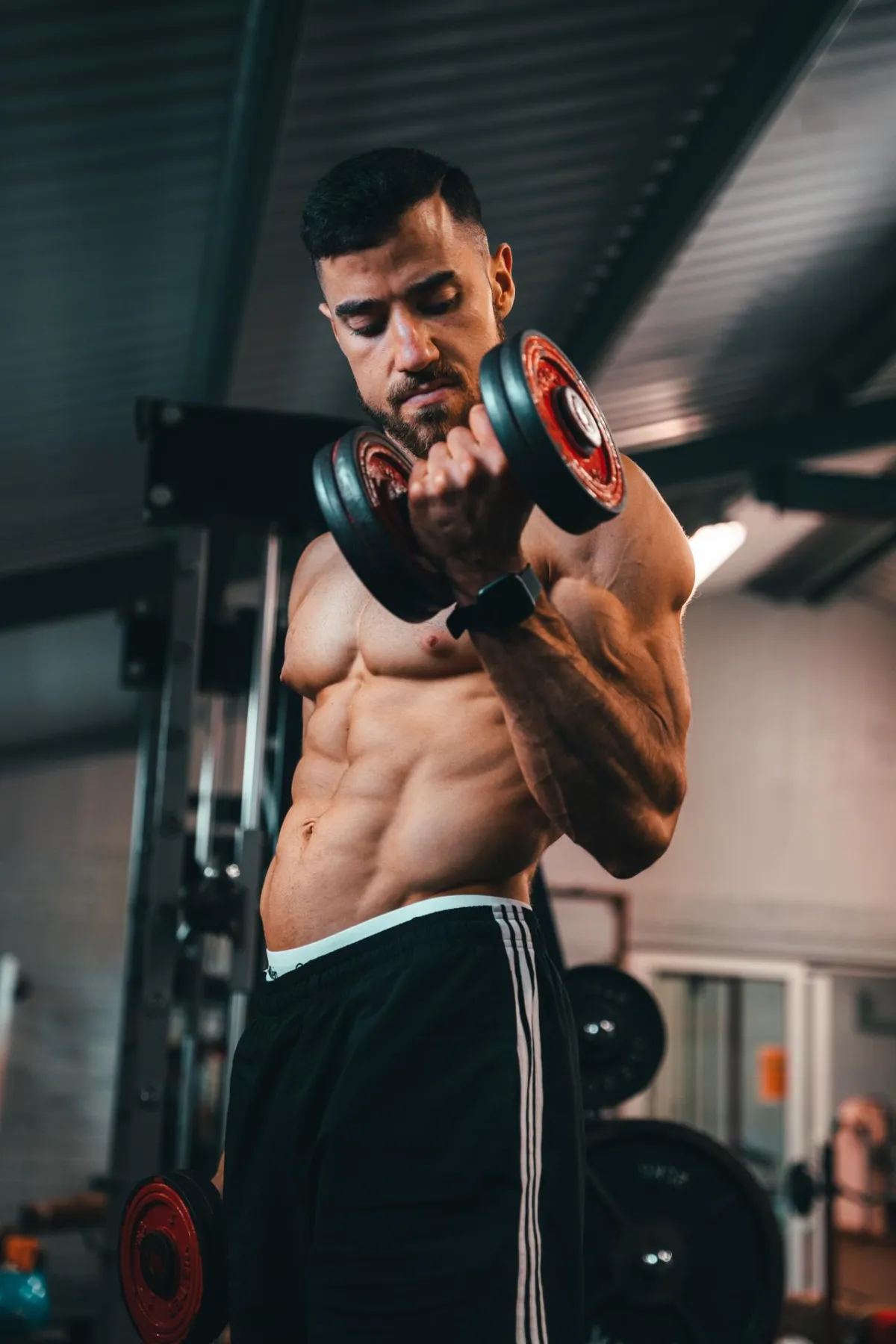
Here are some general guidelines on pre-workout nutrition with the goal being to sustain energy and boost performance.
Protein:
Protein before exercising helps you maintain your muscle mass, increase muscle size and reduce muscle-soreness.
2-3 Hours Before Exercising: Choose sources of lean protein – chicken, turkey, salmon, white fish, lean steak, eggs etc. For vegans, tofu & quorn mince would work well here. Aim for about 0.4-0.5g of protein per Kg of lean body mass.
0-1 Hour Before Exercising: Protein shakes or something light such as Greek yogurt would work well. The leaner sources of protein mentioned above take longer to digest which is not optimal during exercise.
Carbohydrates:
Carbohydrates before exercising fuels your training sessions – particularly high intensity training and can allow you to train at a greater capacity.
2-3 Hours Before Exercising: Slow releasing and complex carbohydrates including potatoes, rice and oats. Vegetables are fine to include but not a large amount as they can cause digestion issues.
0-1 Hour Before Exercising: Lighter and faster digesting carbohydrate work better in this window including rice cakes, some fruit or even a shake with a scoop of protein and some berries mixed together.
Fats:
Fats provide some vital mineral and vitamins but eaten before exercising can slow down your digestion. The closer you come to your training, the lower the intake of fats recommended.
2-3 Hours Before Exercising: Dense fats such as nuts, avocadoes or some oils or seeds sprinkled on your meal are ok to eat further out from training.
0-1 Hour Before Exercising: Fats should be minimised the closer you get to exercising as they can slow down your digestion.
Intra-Workout Nutrition:

With the exception of team sports and endurance events (events that are 90 minutes or longer), the majority of people do not need to worry about fuelling up during your workout. Adequate fluid intake will be the most important element here.
However, if you do play a team sport such as GAA, soccer or rugby for instance, an energy drink consumed at half- time (such as Lucozade sport) helps replenish some of your lost carbohydrates. (Note: it is pointless drinking Lucozade Sport before games as you should have your carbohydrate stores topped up already!).
If you compete in endurance events such as longer distance running, triathlon or ironman training, fuelling up with 30-45g of carbohydrates every hour along with about 10-15g of protein is optimal. This could come from liquids, gels or even some food.
Post-Workout Nutrition Principles:
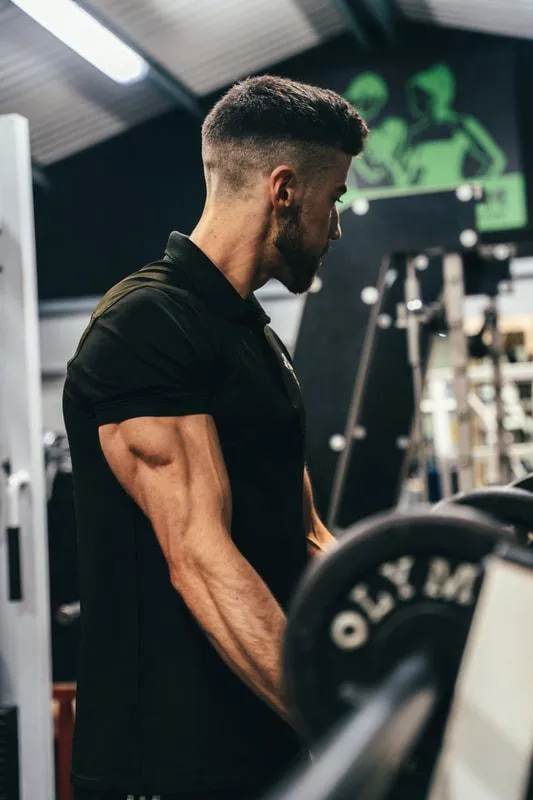
Post workout, the goal is to address the three r’s – refuel, recover and rehydrate. Scientific evidence suggests the post-workout window of opportunity of about 45 minutes to 60 minutes after exercising is particularly important to
get a meal in to kickstart the recovery process.
Why? Because you want your body to transition from an anabolic (muscle breakdown) phase to a catabolic (muscle building phase).
In theory, after exercising – particularly intense weight training or sprinting our bodies energy stores become partially or fully depleted of those carbohydrates we consumed pre-workout.
In other words, our bodies used up some/all of the stored carbohydrates and potentially even tapped into fat stores for additional energy depending on the duration and intensity of exercise.
As a result, post-workout, our muscles are like sponges and are greedy to absorb some nutrients to aid in the recovery process. What nutrients? Carbohydrates and protein are of particular importance.
However, bro-science has taken that post-workout window of opportunity to a new level! i.e., slamming back a protein shake the second you finish your last rep of your last set!
Relax – you will not “lose your gainz” if you don’t have a protein shake immediately post-workout. There is no need to panic if you forgot to pack your shake and have to wait an extra hour!
While it is optimal to eat within 45-60 minutes of a workout, if you’re a busy professional who is trying to balance going to the gym and eating somewhat “healthy,” I reassure you, your overall intake of calories for the full day
matters more than the 45-minute window period post workout. This means it’s ok to drive home, take a shower and cook yourself a delicious meal.
Post-Workout Nutrition Guidelines:
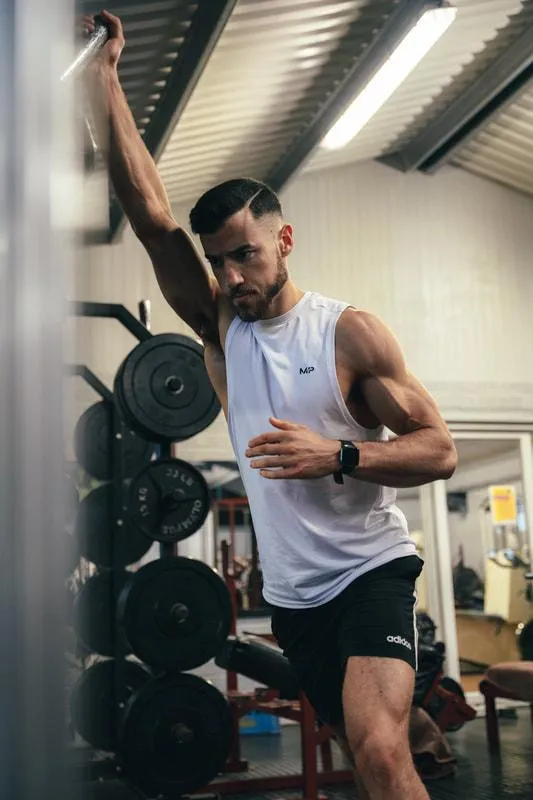
Protein:
Protein after exercising prevents muscle breakdown and helps build new muscle tissue. It is particularly important you get an adequate serving post-workout.
Protein 0-45 Minutes (Optimally) After Exercising: Aim to eat 0.4-0.5g of protein per Kg of lean body mass.
-From lean protein – chicken, turkey, salmon, white fish, egg whites, tofu, quorn (for vegans) etc. to a quicker digesting protein shake, the most important thing is you get some source of quality protein in.
Carbohydrates:
Carbohydrates post-workout help to refill your muscle and liver glycogen (stored carbohydrates). If you do have a sweet tooth, now is the time to have something sweet as your in more of an insulin sensitive state.
However, contrary to popular belief, you do not “have to” spike insulin post-workout with something sugary like jelly babies or a bowl of cereal.
At a minimum, I like to ensure a good quality source of carbohydrates + a piece of fruit is present.
Carbohydrates 0-45 Minutes (Optimally) After Exercising:
A 2:1 to 3:1 ratio of carbohydrates to protein is a good target to aim for. So double or even triple your protein intake from above.
Good sources post of carbohydrates post workout include potatoes (white potatoes work well because they are faster digesting), rice (white rice again for the same reasons), oats etc. along with fruits – particularly bananas post-workout.
If you wanted to spike insulin, sugary treats like cereals and haribos are commonly consumed by bodybuilders in particular.
If you want a quick convenient shake, add some oats, fruit and a scoop of protein to water and blend it up.
Fats:
Fats post-workout can potentially slow down the absorption of protein and carbohydrates. However, in the grand scheme of things if you were to include some quality sources of fats such as nuts, oils, seeds or avocadoes, it is not
the end of the world.
It is just more optimal to have them further away from training (both pre and post-workout).
What if I Train Fasted?
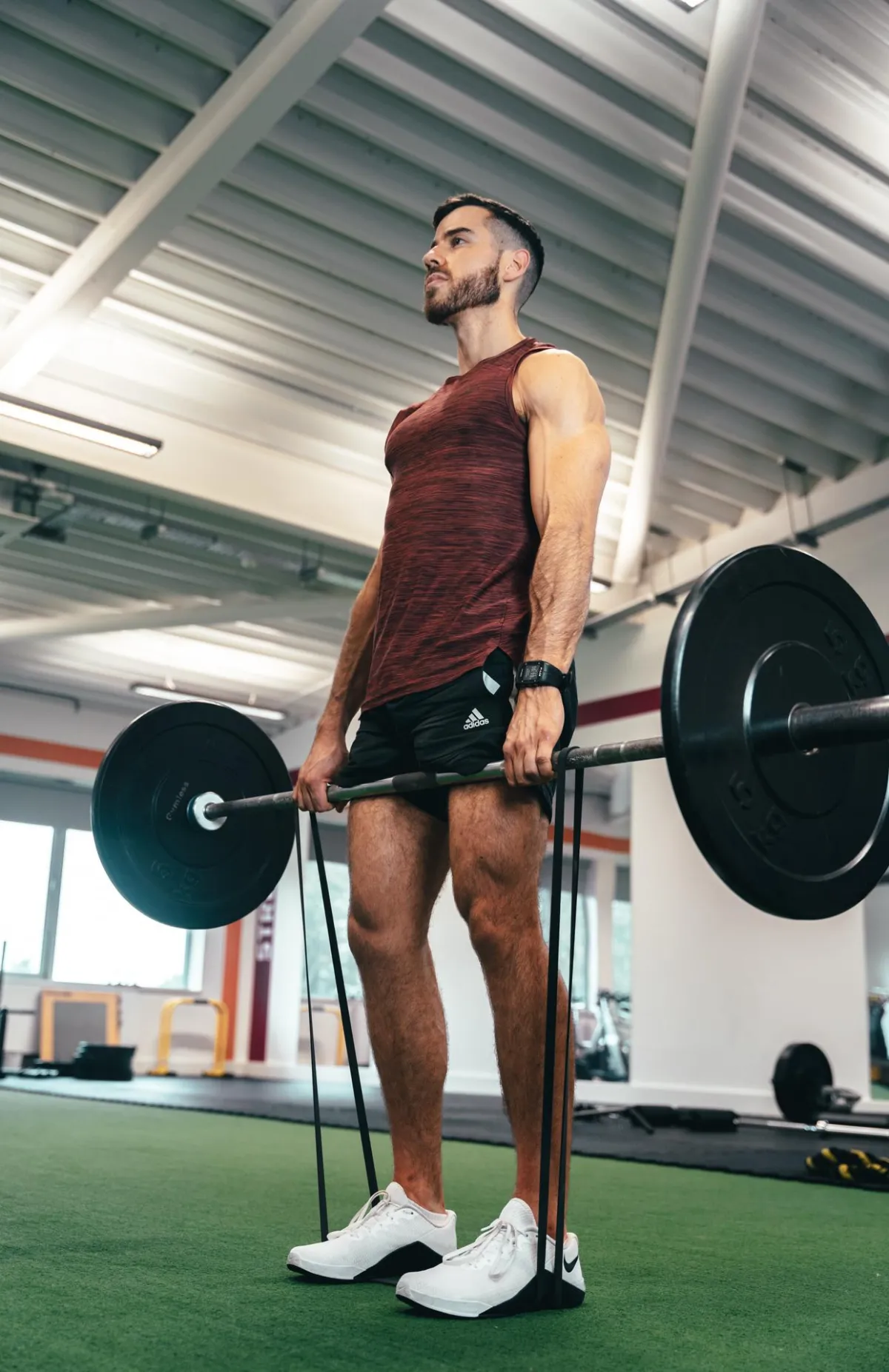
I have been training fasted on and off for over 3 years straight and I didn’t notice any significant decrease in energy or strength.
In fact, I feel training fasted allowed me to be more metabolically efficient – meaning I found my body was better at conserving my carbohydrates for higher intensity exercises only and using fat as a fuel source for all other lower- intensity exercises I perform.
In other words, when I felt I needed my carbs to kick in (for max effort lifts, box jumps, conditioning etc.), I felt I can tap into them better because I had them topped up from the day before. I used to wrongly assume that “I’d be weaker today” if I hadn’t eaten prior to the gym session but that hadn’t been the case for me.
Provided your overall nutrition is consistent, there is nothing particularly wrong about training fasted – especially for recreational gym go-ers.
However, I wouldn’t recommend training fasted for athletes training on the field or someone aiming to build a lot muscle. Athletes need all the fuel they can get while building muscle is most optimally done in a calorie surplus. For a lot of people, getting the correct amount of calories is a challenge in itself. So, shortening the eating window would make it even more difficult.
However, if you do train fasted, I would recommend you have between 5-10g of BCAA’s pre-workout to prevent any muscle from being broken down during your session.
Any-Time Nutrition:
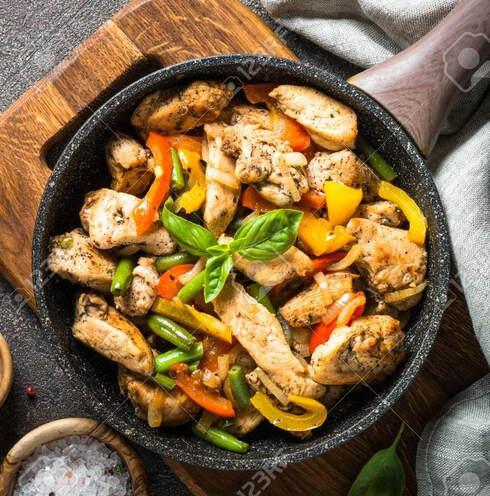
Any-time (AT) nutrition as the name suggests refers to any other time of day – this can be three hours or more outside the window of your workout or on rest days.
AT meals emphasise leaner sources of protein, healthy fats and fibre rich vegetables. Carbohydrates are not as important in AT meals, particularly starchy carbohydrates such as potatoes, oats and rice.
However, depending on your training goals, recovery and your tolerance to carbohydrates, a small/moderate serving
of starchy carbs may be included.
Anytime Nutrition Examples:
Stir-fries: Meat/Fish/Tofu + 4-5 vegetables + Handful of nuts + Spices of choice.
Salad: Meat/Fish/Tofu + Boiled Eggs + 3-4 vegetables + Oil dressing/Nuts.
Shake: Protein + Frozen Vegetable/Berries + Peanut Butter + Water/Almond Milk.
Burrito Bowls: Meat/Tofu + 4-5 vegetables + Beans + Avocado + Dressing of choice.
Roast: Oven Baked Meat/Fish/Tofu + 3-4 vegetables steamed/boiled + Avocado + Flavour of choice.
As you can see the formula is geared towards lean proteins, vegetables and healthy fats.
Depending on your activity levels, your macros and your specific goals, clean & complex carbohydrates may be included here.
However, I omitted them for the purpose of structuring AT meals.
What About Meal Frequency?
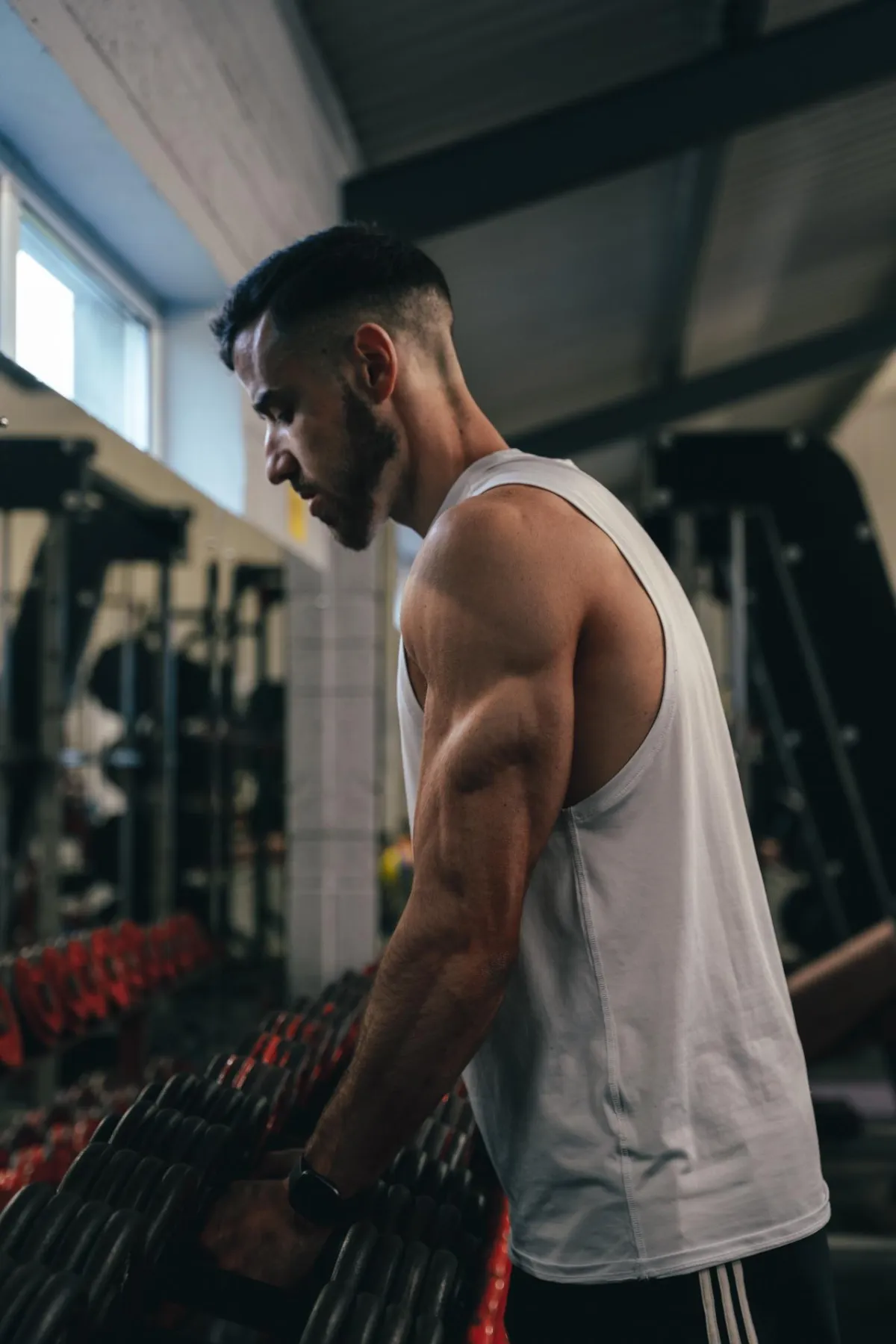
Is it better to eat small meals frequently throughout the day? Or to eat a few big meals each day with a bigger time gap between them?
The answer? There’s no “right approach” per se. Provided we eat real foods in the right amounts, meal frequency comes down to personal preference.
My advice? I’m not a big advocate of OMAD – one meal a day simply because it’s not just about how much you eat but how much you absorb. And if you’re forcing yourself to eat 2,000 calories or more in one sitting, all of that food is not going to get absorbed.
On the flip side, I think having upwards of 7-8 ingestions of food per day barely gives your body enough of a chance to digest the previous meal before starting a new one.
My personal preference for myself and for my clients is to have in the range of 3-4 meals per day. I think 3 square meals works really well for some of my fat loss clients along with 1-2 high protein snacks.
For my muscle building clients, because they need to consume more calories, I prefer spreading them out evenly over 4 - 6 meals.
As you can see, meal frequency largely comes down to personal preference. However, sticking within the 3-6 ingestions of food per day is a good practice for most.
How Important Is Nutrient Timing?
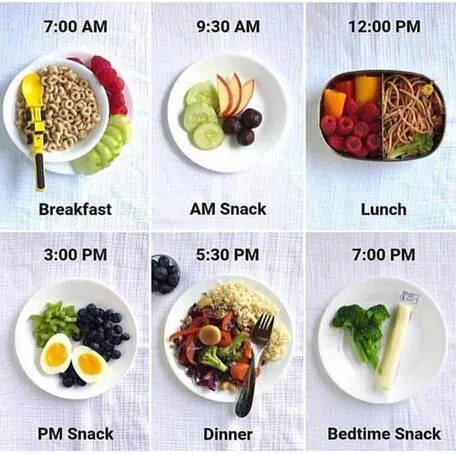
If you want to look and feel more comfortable and confidence in your clothes, nutrient timing isn’t particularly important.
What’s more important is:
1. How much you’re eating (calorie intake)
2. Protein & fibre intake (fibre includes vegetables and fruits)
3. What you are eating (mostly real foods with single ingredients)
4. Water intake (40-50ml per Kg of bodyweight)
5. Getting enough sleep (7-9 hours)
This means, if you’re a busy professional working long hours, you don’t need to add any additional stress to your life about “perfecting” your nutrient timing. Try to establish good nutrition routines into your daily life consistently.
The best nutrient timing strategies will not compensate for poor quality, mindless or inconsistent eating patterns.
If you’re an athlete (field or endurance), compete at multiple events in a single-day or a meat-head who takes your lifting particularly seriously, it can be beneficial to start diving into some of the finer details mentioned above.
However, for most of us, stressing out over nutrient timing may be adding more complexity to our busy lives than what it’s worth. So, focus on addressing 1-5 above firstly before you dive into nutrient timing.
And most importantly, do what works for you and your busy schedule. We’re all unique and there’s no one-size fits all.
The Takeaways:

✓ The bigger the meal you’re going to have pre-workout, the further away it should be from your session.
✓ Pre-workout aim to consume high quality protein and a serving of carbohydrates. Limit your fibre intake the closer you are to your workout.
✓ Post-workout, optimally try to get a 3:1 ratio of carbohydrates to protein in 45 mins or less after finishing
your workout.
✓ If you’re training fasted, try consuming a bigger carbohydrate based meal the night before to fuel your session.
✓ Outside of pre- and post-workout, be sure to include lean protein and lots of fibre in your everyday meals.
✓ Meal frequency will vary depending on your goal. However, anywhere in the region of 3-6 meals with the same/similar number of calories works best for fat loss or muscle-building clients of ours.
✓ Total daily calorie intake (including the quantity and quality) comprised of good quality carbohydrates, proteins and fats is more important than the specifics of nutrient timing.
References: Ryan, A - 2009: “All About Nutrient Timing.”
St Pierra, B: “Is Nutrient Timing Dead?”
Free 3-Day Total Body Training Program:
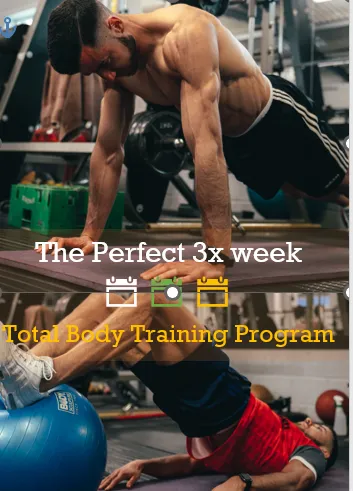
Depending on your goal, I have some free resources which might be of benefit to you.
If you’d like a copy of my free, 3-day Total Body Transformation Program click HERE! (Enjoy the core finisher!).
If you’d like a copy of my Free Living Lean Cookbook to prove to you that it’s possible to eat foods you enjoy and get results, click HERE.
(Try out some EPIC protein pancakes!).
And if you’d like access to my Free 7 Day Fat Loss Accelerator (which has helped some members drop up to 7lbs inside 7 days),
click HERE and it will be sent straight to your email.
I hope these free resources help you!
About Adrian McDonnell & McLifestyle Fitness:
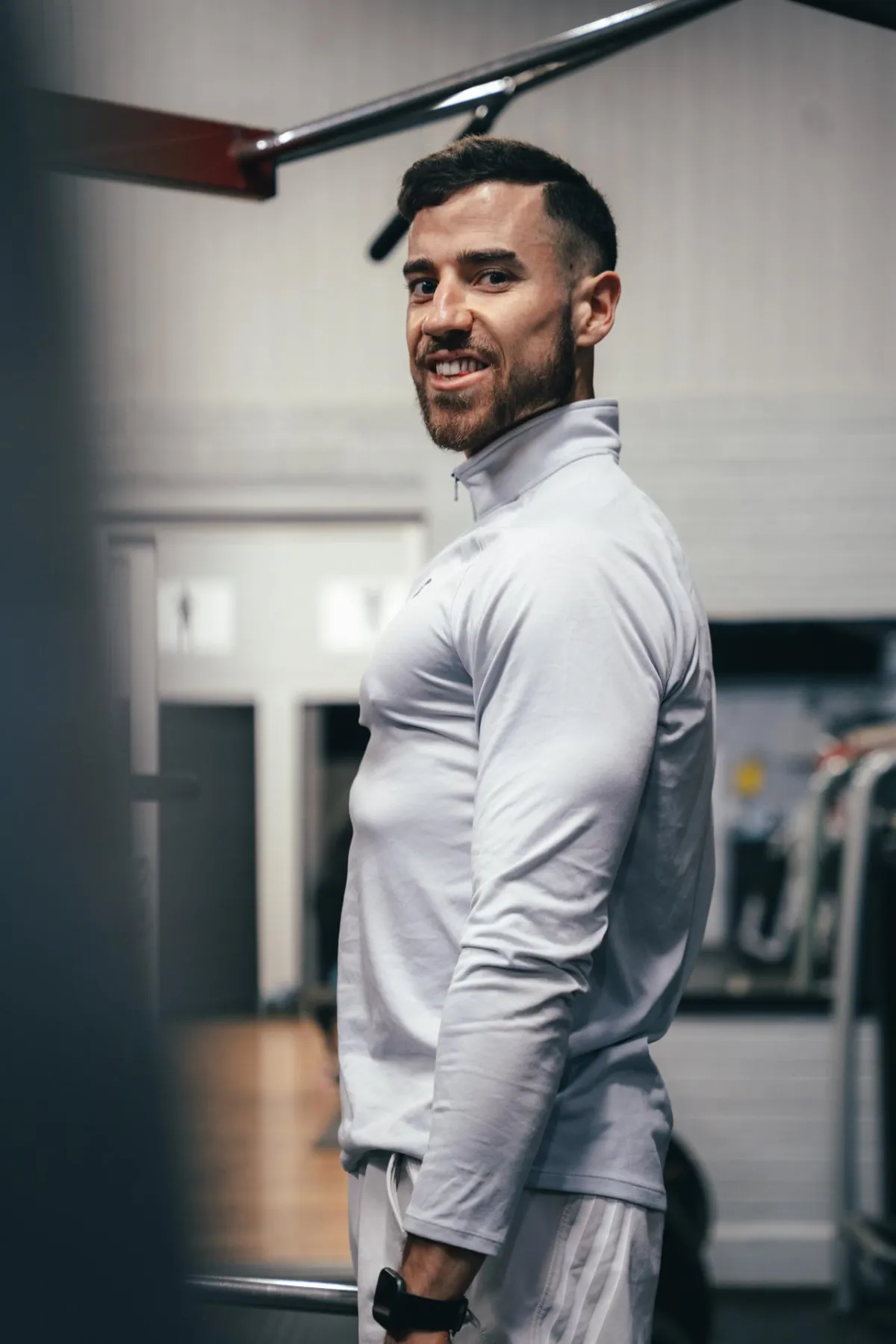
Adrian McDonnell is a highly specialised Personal Trainer & Online Fitness Coach from outside of Tuam, Co.Galway, Ireland.
Previously a primary school teacher for almost 5 years, Adrian followed his passion and pursued a career in fitness after seeing first hands the results he could achieve with himself.
Although Adrian is a Personal Trainer & now Full-Time Online Transformation Fitness Coach from outside of Tuam, Co.Galway – he not only coaches clients locally, but also nationally and internationally.
Adrian specialises in helping working professionals:
• Be confident in themselves
• Feel more comfortable in their clothes
• Look better in the mirror.
• Increase their energy and go for more promotions at work
• Get fitter, leaner, stronger, faster & more athletic without following rigid meal plans.
• Go on more dates (this is a common one).
• And feel proud of themselves for doing something they never thought was possible!
To date he has helped Transform over 500 Clients into fitter, more toned & confident individuals.
Transforming people’s lives through proper fitness, sustainable & enjoyable nutrition practices & mindset mentoring is something Adrian is truly passionate about and this is his mission in life.
Want to find out more?
Contact me today & I’ll answer any questions you have.
1:1 Online Coaching Application:
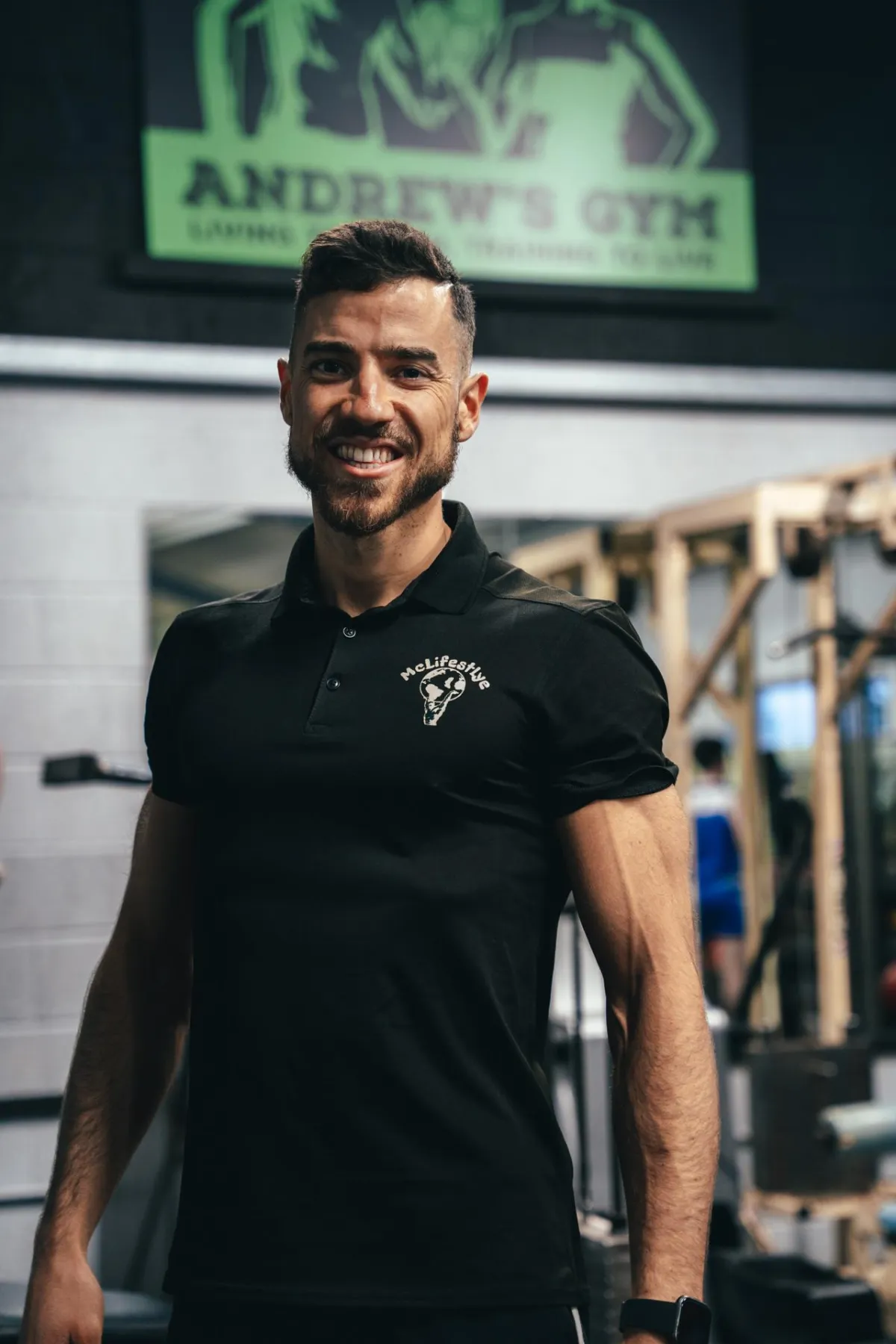
If you’d like a coach to help get you out of a routine that isn’t currently working for you and into one that will, then book your free consultation call today to see if you’d be a good fit for my Online Coaching.
This is where having the structure and accountability of a coach comes in. I’ll help you get the results you’ve always desired and make your journey much easier and quicker than doing it on your own.
What’s the purpose of the consultation call?
To deep dive into your lifestyle, goals and current challenges and from there decide if we’d be able to work together.
If we are a good fit, we can get working on your personalised program so you can finally make the changes you’ve always wanted.
You’re just one click away of becoming a success story.
Read Last Week's Post
© 2026 McLifestyle Fitness & Performance Ltd. - All Rights Reserved
Privacy Policy | Terms & Conditions | Release & Waiver of Liability